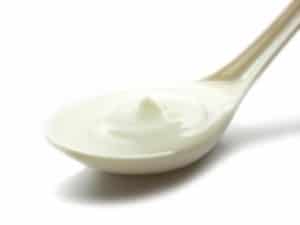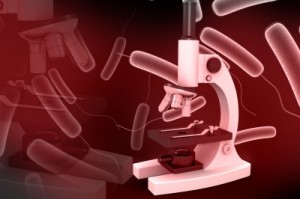
Since we depend on microbes for our health, we need to ingest healthful beneficial ones into our body’s ecosystem. Fermented foods and probiotic supplements are two ways to do just that. Fermented foods contain live microbes. (Examples of fermented foods are: sauerkraut, yogurt and kefir).
When food is prepared in specific ways and under certain conditions, the healthful bacteria and yeast are able to grow and ferment. The bacteria actually eat and break down the food they are growing on which can actually make the food easier for people to digest.
Fermented foods have a couple benefits over probiotic supplements. First, they are more affordable and second, you can get a wider variety of beneficial bacteria from fermented foods. Probiotics supplements usually only have between one and eight strains of different bacteria. Since diversity is so important for your gut, you want more variety and types of microbes.
You can buy fermented foods or make your own. Buying is tricky, because many products have been heated or sterilized before packaging, thus killing the microbes you are seeking. Making your own may sound intimidating but it can be done with a little time and effort. There are many websites and cookbooks available that can instruct you.
When making your own fermented food, you can either ‘culture’ or go ‘wild’. Culturing refers to using specific isolated organisms (a “starter kit”) that you introduce to the food and then grow. Wild fermentation uses whatever microbes are on the original food or in the air. Usually, vegetable ferments are wild, where as milk ferments are cultured.
Since fermented foods have bacteria and yeast in them, the first thing you need to do is clear up any infections, Candida, or SIBO first. Otherwise, the fermented foods or probiotics will make symptoms worse! Re-inoculating your gut is the last step in healing. For people without those bacteria or yeast overgrowth issues, eating fermented foods can be done along side the other healing steps.
Whatever method you use to reintroduce beneficial microbes into your gut, you need to go slowly. At first, you should only ingest very small amounts daily so that your gut can adjust to them. Taking in too much too fast can cause gastrointestinal symptoms. If this happens, don’t give up just start again more slowly. You also must eat these foods (or take the supplements) regularly and consistently, as it is difficult for new microbes to establish themselves in an already formed ecosystem (your gut).
Stay tuned for future posts about specific fermented foods.
Image courtesy of SOMMAI at FreeDigitalPhotos.net



